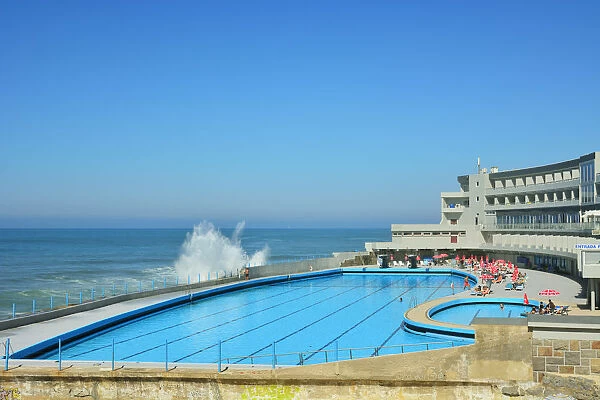Portugal is increasingly becoming a popular destination for international students due to its rich culture, affordable living costs, and wide range of scholarship opportunities. Whether you’re seeking government scholarships, university aid, or private funding, Portugal offers numerous avenues to help international students pursue higher education. This article outlines the main types of scholarships available, tips for applying, and a detailed breakdown of living and studying costs.
Scholarship Options for International Students
For international students, Portugal provides multiple scholarship programs, each with its own criteria and benefits. These scholarships can ease the financial burden and open doors to excellent educational experiences. Below is a breakdown of the major scholarship opportunities:
Erasmus+ Program
The Erasmus+ program is one of the most recognized scholarship programs in Europe. If you’re a student at a European university, you might already be familiar with it. This program encourages students to study abroad in a European country, including Portugal. Erasmus+ covers various expenses such as living costs, travel, and sometimes accommodation. Students from other European countries can easily integrate into Portuguese universities through exchange programs, making it a highly accessible and appealing option for those seeking education in Portugal.
Learn more about Erasmus+
Portuguese Government Scholarships
Another key funding option comes from the Portuguese government. The Directorate-General for Higher Education offers scholarships to students from underdeveloped and developing nations, allowing them to study in Portugal. These government scholarships typically cover living expenses, tuition fees, and sometimes even provide a stipend for personal expenses. The primary goal of these scholarships is to promote inclusivity in education, ensuring students from all socio-economic backgrounds have the opportunity to study in Portugal.
Explore Portuguese Government Scholarships
University Scholarships
Many Portuguese universities offer their own scholarships for international students, making them a direct and reliable source of financial aid. Here are examples of some prominent universities and their scholarship offerings:
- University of Lisbon: Offers merit-based scholarships for students who demonstrate outstanding academic achievements.
University of Lisbon Scholarships - University of Porto: Provides scholarships to students based on academic performance and financial need, ensuring that those who excel in their studies but struggle financially can still complete their education.
University of Porto Scholarships - Nova University: Offers specialized scholarships for students from certain regions or countries, promoting cultural exchange and diversity within the student body.
Nova University Scholarships
Each university has its own set of eligibility requirements and deadlines, so it is essential to check the university’s official website for up-to-date information on scholarship availability and application procedures.
Research Scholarships
For students pursuing postgraduate degrees, research scholarships are an excellent way to fund studies in Portugal. Many research organizations collaborate with universities to offer financial aid to students involved in specific research projects. These scholarships typically cover living expenses, research-related costs, and often offer opportunities for hands-on experience in academic or scientific research. If you’re planning to pursue a master’s or PhD, consider applying for research scholarships, as they can provide valuable support throughout your academic journey.
Research Scholarships in Portugal
Private and Non-Profit Scholarships
In addition to government and university scholarships, several private organizations and non-profit foundations also offer funding opportunities for international students. Some prominent organizations include:
- Calouste Gulbenkian Foundation: This foundation provides scholarships for students from various countries, supporting them in their educational pursuits in Portugal.
Calouste Gulbenkian Foundation - Luso-American Development Foundation: Aimed at students with ties to the U.S. and Portugal, this foundation offers scholarships to promote educational exchange between the two countries.
Luso-American Development Foundation
These private scholarships may focus on specific areas of study, such as the arts, sciences, or social sciences, and often encourage students to engage in community development or research projects.
Sports Scholarships
If you’re an athlete, you might be interested in sports scholarships offered by Portuguese universities and sports organizations. These scholarships are designed to help talented athletes balance their academic studies with their sports careers, covering tuition fees and living expenses. Whether you’re a soccer player, swimmer, or part of another sport, exploring sports scholarships could be an excellent way to fund your studies while continuing to develop your athletic talents.
Sports Scholarships in Portugal
Tuition Waivers
In some cases, particularly in programs related to science, technology, engineering, and mathematics (STEM), universities may offer tuition waivers or significantly reduced tuition fees for international students. These tuition waivers are usually awarded based on academic excellence or potential in a specific field of study. By promoting diversity and attracting top talent from around the world, Portuguese universities aim to enhance their academic programs and research output.
Tips for Applying for Scholarships
Applying for scholarships can be competitive, especially with so many students seeking financial aid. However, with proper preparation and attention to detail, you can increase your chances of success. Here are some tips to help you navigate the application process:
- Start Early: Scholarship deadlines can be as early as six months to a year before the start of the academic program. Begin researching your options well in advance to avoid missing out on opportunities.
- Prepare Required Documentation: Most scholarship applications will require documents such as academic transcripts, letters of recommendation, proof of financial need, and a personal statement. Gather these materials early so you can submit a complete application.
- Customize Your Application: Tailor your personal statement or essay to match the goals and values of the scholarship program. For example, if the scholarship promotes cultural exchange, highlight your experiences with diversity and your interest in studying abroad.
- Highlight Your Achievements: Whether it’s academic performance, extracurricular activities, or community involvement, make sure to emphasize your accomplishments in your application. Show the selection committee why you stand out as a candidate.
- Proofread: Before submitting your application, carefully review it for spelling, grammar, and formatting errors. A polished and professional application makes a strong impression.
How to Find Financial Aid Options
Finding the right financial aid options can feel overwhelming, but there are many resources available to help guide you through the process. Here are some effective ways to locate scholarships and financial aid:
- University Websites: Most universities provide detailed information on the scholarships they offer, including eligibility criteria and application deadlines. Be sure to visit the official websites of the universities you’re interested in.
- Government Resources: The Portuguese government’s Directorate-General for Higher Education offers scholarships and grants. It’s worth exploring their resources to find government-funded financial aid programs.
DGES Scholarships - Scholarship Databases: Websites like Scholarship Portal and Study Portals allow you to search for scholarships based on your field of study, nationality, and academic level. These platforms can help you narrow down your options and find scholarships that fit your specific needs.
Scholarship Portal
Average Costs of Studying in Portugal
Understanding the costs of studying and living in Portugal is crucial for planning your budget. Here’s a breakdown of typical expenses:
Tuition Fees
- Public Universities: Tuition typically ranges from €1,000 to €3,500 per year for undergraduate programs and €1,500 to €5,000 for master’s programs.
- Private Universities: Private university tuition is generally higher, ranging from €5,000 to €12,000 per year.
- Language Programs: For international students looking to improve their Portuguese, language programs cost between €500 and €1,500 per semester.
Study Costs in Portugal
Living Expenses
- Accommodation: Rent for a single room in Lisbon or Porto ranges from €300 to €600 per month. Shared housing is more affordable, at €200 to €400.
- Food: Monthly grocery costs average around €200 to €300, while eating out costs about €10 to €15 per meal.
- Transportation: Public transportation passes cost between €30 and €50 monthly, but biking or walking is a good way to save money.
- Utilities and Internet: Expect to pay €100 to €150 per month for utilities and around €25 to €40 for internet.
- Health Insurance: Health insurance typically costs between €30 and €60 per month for international students.
Studying in Portugal is generally affordable compared to other European countries, and the combination of lower tuition fees and a reasonable cost of living makes it a great option for international students.







